Cricketers at War: Greg Growden writes of Aussie sporting legends in new book
From Gallipoli to Vietnam, Australia’s cricketing legends have found themselves on battlefields around the world. In this book extract, sports journalist Greg Growden looks back on one of the most charismatic figures of all.
Books
Don't miss out on the headlines from Books. Followed categories will be added to My News.
From Gallipoli to Vietnam, Australia’s cricketing legends have found themselves on battlefields around the world. Sports journalist Greg Growden writes of the incredible courage of our sports heroes on the frontline in Cricketers at War.
For many, it is not just their favourite cricket quotation. It is their favourite quote of all, helped along in being uttered by their favourite sportsman.
The quote bobs up somewhere every year. Ron Barassi, among AFL football’s most important individuals, was recently asked who his sporting hero was.
Easy. Keith Ross Miller.
‘I remember talking to him, many years after the Second World War, and asking him about the pressure of playing cricket at the top level,’ said Barassi, another who knew all about pressure as a successful player and coach. ‘Keith replied: “Pressure, mate? In cricket? You’ve got to be kidding. Pressure is turning around and seeing a Messerschmitt flying up your arse!”
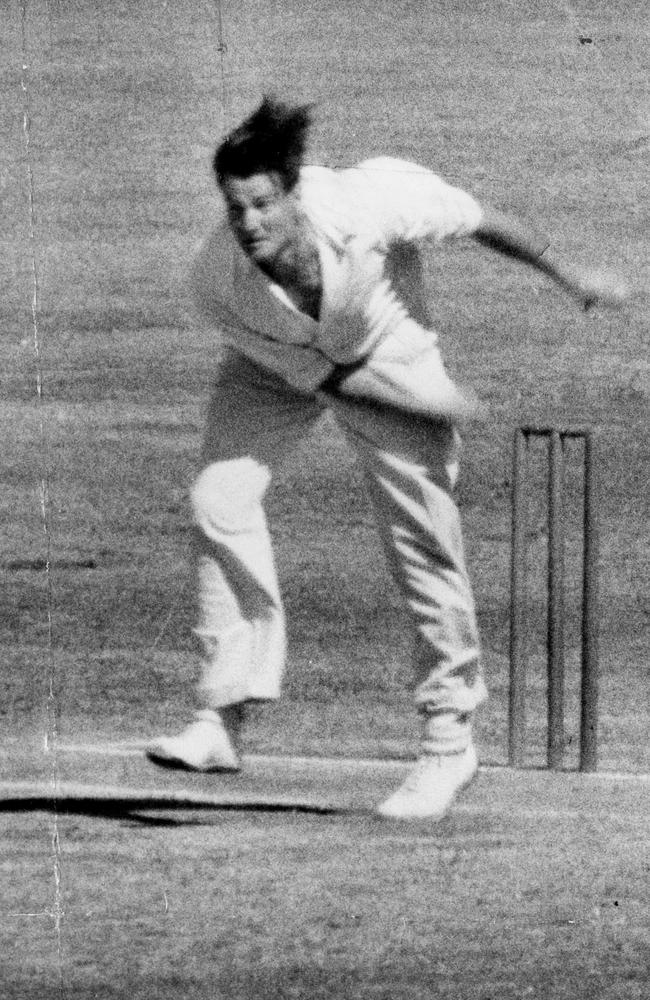
When he died in 2004, the Messerschmitt quote was used in virtually every Miller tribute. For one of Australia’s most admired cricketers, it became his catchcry.
While placing the life of an often over-inflated elite sportsman into some sort of perspective, the quotation also reminded all of Miller’s and numerous other cricketers’ intense links with war.
Miller is one of Australian cricket’s most charismatic characters. The aura remains. It wasn’t just his vast sporting skills, which included not just his immense all-round cricketing abilities but also his prowess as an Australian Rules footballer, that made him such an attractive figure. It was the way he embraced life. There was always a touch of the Australian larrikin about him.
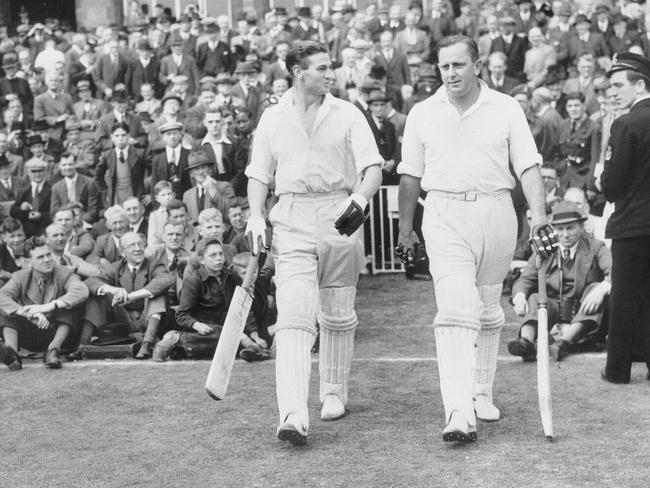
He loved a drink. He loved a party. He loved his mates. He had no qualms appearing just before the start of play wearing a dinner suit, somewhat muddled by a long night of revelling — but as soon as he was required he would be ready for the contest. He attracted glamour. Princess Margaret swooned every time he was in the vicinity. The Princess pursued him.
Miller’s wartime experience enhanced that persona. He was a dashing, debonair and accident-prone Second World War fighter pilot who was occasionally let loose over Europe. A warrior who had a touch of the mug lair, Miller was often in trouble with officialdom as he couldn’t avoid the occasional near miss, through a sometimes reckless approach to piloting a plane. Miller abhorred hypocrisy, authority, and especially incompetents who cunningly used their position of power to avoid responsibility. The English class system particularly irritated him.
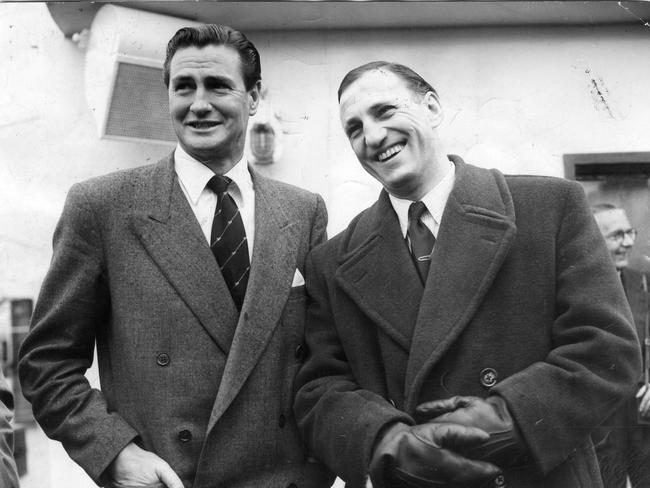
In 1945, Miller and a mate were on their way back to an English air base following several days of leave. As they walked along the tight village track, an RAF official sedan drew up next to them. A pompous British twit called from the back seat: ‘Officers, take your hands out of your pockets immediately!’ Miller peered inside. ‘Get stuffed.’ The vehicle took off.
His mate was quivering, as he knew the twit was ‘at least a vice-marshal, judging from the gold braid around the peak of his cap’. Miller replied: ‘Yes … and a shiny arse, I’ll bet.’
But those war years deeply affected Miller. He would get emotional whenever talking about lost colleagues, who included countless close friends who had displayed incredible courage.
He had little interest in talking about his own exploits. He instead did all he could to praise others’ wartime exploits. He wasn’t alone in being scarred by the experience.
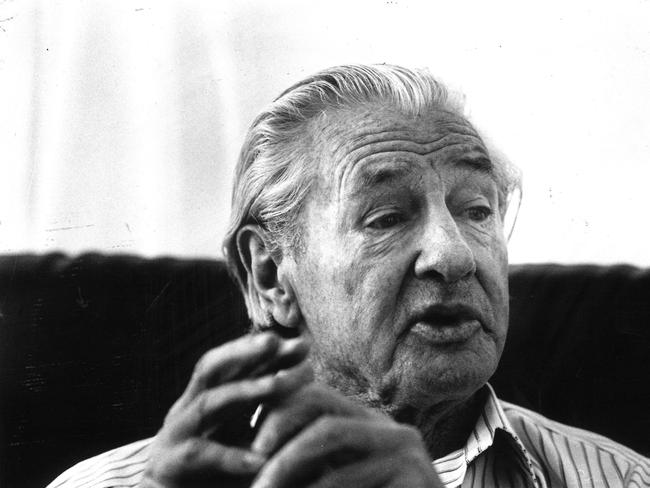
Countless Australian cricketers were shaken to the core by their involvement in battle. The Great War, Second World War and Vietnam War ruined many flourishing cricketing careers, but also enhanced some. Some found themselves entangled in a relentless recruitment propaganda campaign.
Others were portrayed as national heroes — being used to reinforce the message that if they’re defending the country then why not you? Some were abused by the system. Cricket authorities at the beginning of both world conflicts debated over whether they should be completely committed to the war effort, or be providing an alternative for those who weren’t serving.
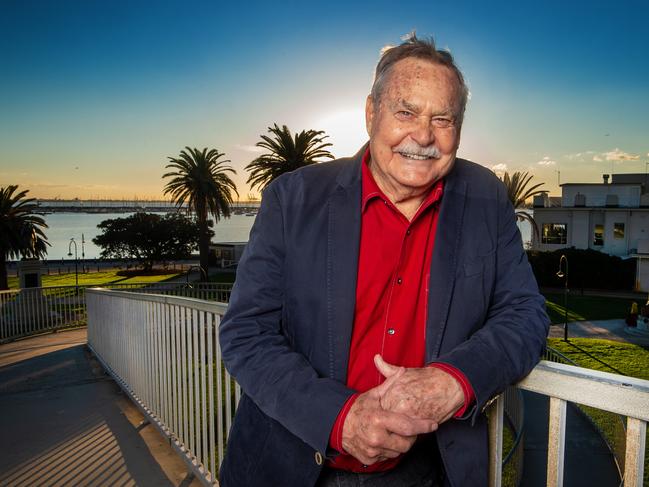
Whether to continue playing cricket or not during wartime became an emotional argument. Friendships, alliances were affected. Religion, patriotic beliefs, allegiance to the Empire all played a part, and often created divides. The majority were sucked in by the nationalistic push, as portrayed by J.C. Davis, the editor of Sydney’s weekly sporting newspaper, The Referee, in a piece glorying ‘great sportsmen who died while on active service’. Davis’s article began: ‘The national call to arms sounded in August, 1914. The men were volunteers from the first to the final contingent.
The early contingents, marching through Sydney, and down what is now known as Haig Avenue, to the troopships at Woolloomooloo Bay, were the finest body of men I ever saw.
Tall, six-footers to a man, one thought. Square-shouldered, deep-chested, well-groomed. They marched like gods of war.’ Many became ghosts, though, even if Davis stressed that those men involved in the first wave at Gallipoli on 25 April 1915 were ‘brothers-in-arms, as they were brothers in sport … they leapt from the boats with the instincts of free men, hardened by their field sports’.
Not all of those hardened by their field sports came back.
Australia lost many important, vibrant sportsmen, in particular cricketers, on the battlefield. In the Great War, 15 Australian first-class players were killed, including one Test representative — Tibby Cotter. Others, like Norman Callaway, would have almost certainly represented Australia if they had survived the war. Overall, counting all nations, 12 Test cricketers and more than 250 first-class players perished.
In the Second World War, it was a similar Australian equation: 12 first-class players, including one Test representative — Ross Gregory.
This time, overall, nine Test players and more than 150 first-class players were killed.
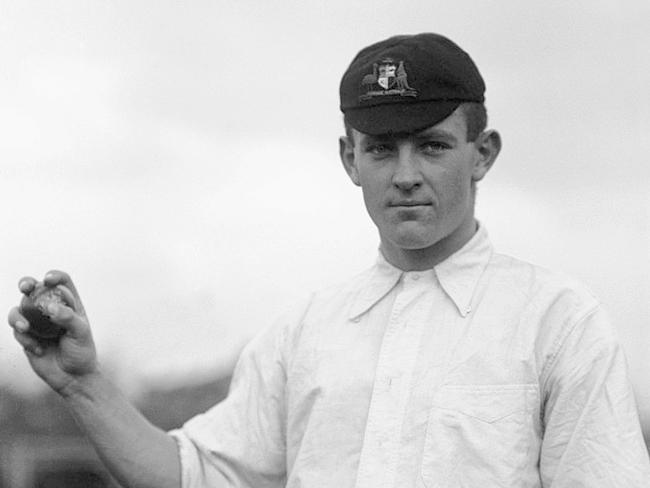
Among the male and female cricketing ranks sent to battle were fearless frontline soldiers, leaders of distinction, those who suffered badly in prisoner-of-war camps in Europe and Asia. Many experienced years of torture, but rose above it all to provide support to comrades worse off than them.
Others were involved in secret, dangerous missions deep behind enemy lines.
Some defied constant pain by refusing to have limbs amputated because their dream was of returning to the cricket fields as soon as this nightmare ended, and they achieved that dream. There were shirkers, reprobates, deserters, conmen, those who used the system. Some simply disappeared, their bodies never found, one even murdered, while the deaths of several notable Australian cricketers were mysterious, even sinister. Those who survived often wouldn’t talk about it, and some cricket careers were later badly affected by mental breakdowns caused by frontline stress.
All were unable to forget the war. There were mighty fighter pilots, courageous men willing to charge any trench, fearless stretcher-bearers, commanders and workers. Some took on the enemy alone. The cricketing ranks had them all.
This is an extract from Cricketers at War by Greg Growden. Published by HarperCollins and now available in all good bookstores and online.
Originally published as Cricketers at War: Greg Growden writes of Aussie sporting legends in new book
